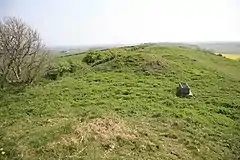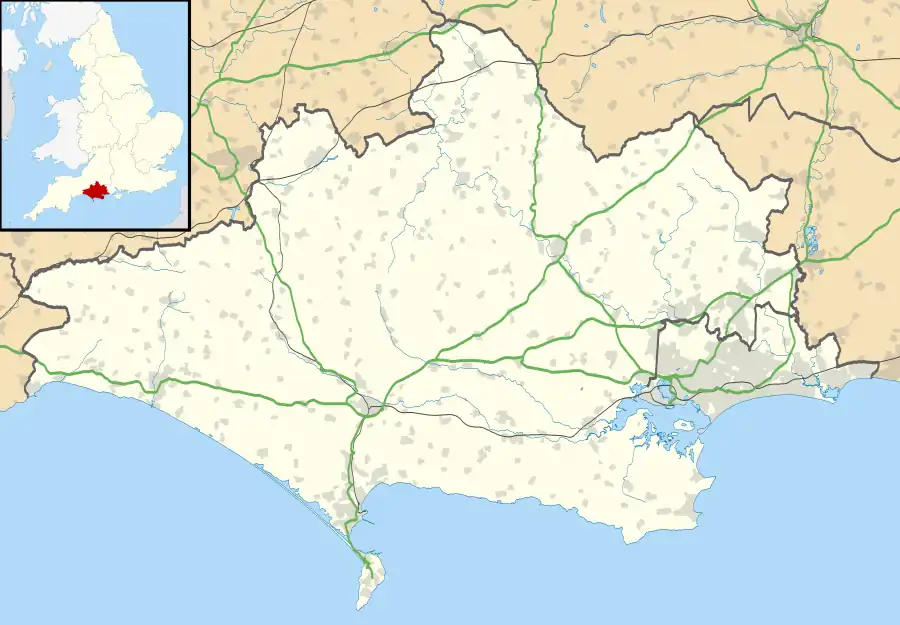Five Marys
The Five Marys is a group of Bronze Age round barrows near the village of Chaldon Herring, in Dorset, England. The site is a scheduled monument.[1]
 Looking east along the line of barrows | |
 Shown within Dorset | |
| Location | near Chaldon Herring, Dorset |
|---|---|
| Coordinates | 50°39′25.6″N 2°17′53.2″W |
| OS grid reference | SY 790 842 |
| Type | Round barrows |
| History | |
| Periods | Bronze Age |
| Site notes | |
| Excavation dates | 19th century |
| Archaeologists | Duchess of Berry |
| Designated | 27 February 1957 |
| Reference no. | 1013344 |
Description
The barrows, on a west–east ridge overlooking Chaldon Herring to the south, are in an almost straight line. In Taylor's Map of Dorset, of 1765, they are shown as "Five Meers" (boundary points).[1][2]
There are two bowl barrows, and four or seven bell barrows, according to different surveys. A pond barrow has been discerned but was not visible on other inspections. The largest barrow has height 3.3 metres (11 ft). All but one have been damaged by antiquarian excavation.[1][2][3]
Excavation
Two of the barrows were excavated before 1866 by the Duchess of Berry; she was staying in Lulworth Castle, in exile after the dethronement of Charles X of France in 1830.[1]
The two barrows excavated are thought to be the first and third large barrows from the west end. A deep chalk-cut grave was found in each barrow, each containing a male skeleton in a sitting position, with stag antlers overlying each shoulder. One barrow also contained a female skeleton, with similarly placed stag antlers, and the other had a secondary cremation in an urn.[1][2]
References
- Historic England. "The Five Marys round barrow cemetery (1013344)". National Heritage List for England. Retrieved 24 January 2021.
- 'Earthworks: Round Barrows', in An Inventory of the Historical Monuments in Dorset, Volume 2, South east (London, 1970), pp. 434-480 British History Online. Retrieved 24 January 2021.
- "Five Marys" Pastscape. Retrieved 25 January 2021.